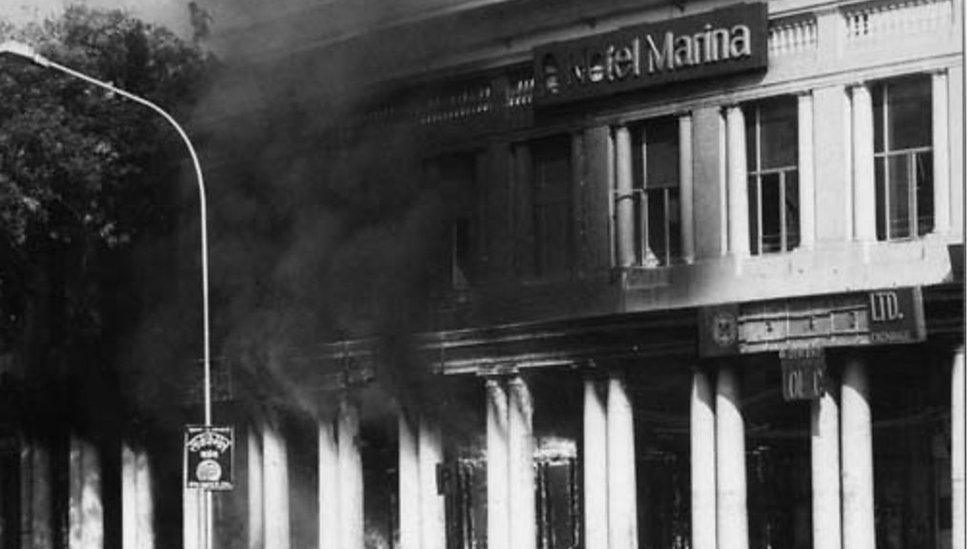'No justice': Anti-Sikh violence in 1984 remembered
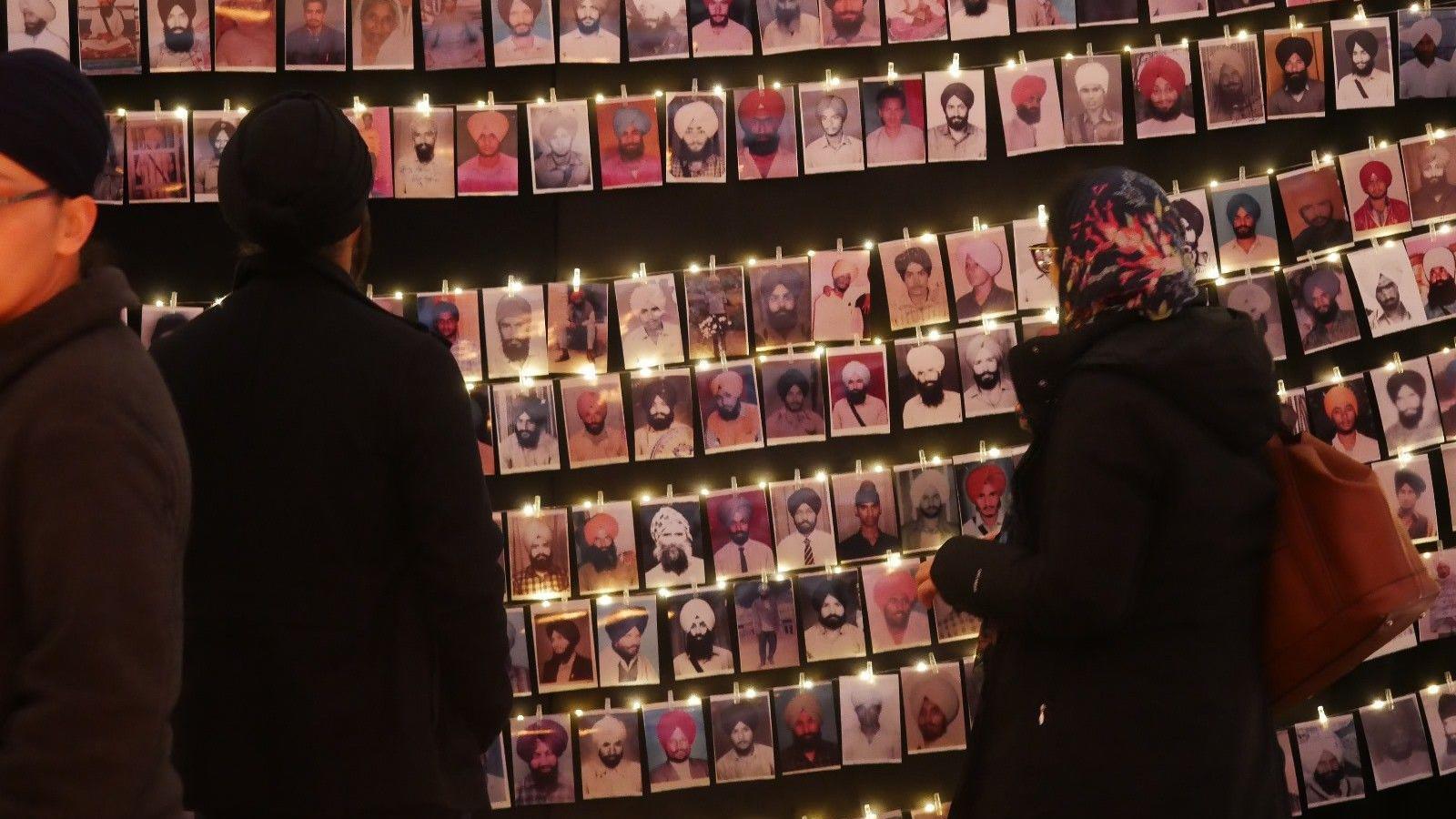
The event, held at Centenary Square, Birmingham, commemorated 40 years since anti-Sikh attacks in India
- Published
A memorial event has taken place to remember those killed during anti-Sikh riots in India 40 years ago.
Candles were lit in remembrance, in Birmingham's Centenary Square, with harrowing stories told in testimonies of survivors of the violence, on 31 October 1984.
Sikh societies and charities held Saturday's vigil to remember the victims and show solidarity with survivors who are still seeking justice.
Kuldeep Singh Deol, one of the organisers, said: “It was a very emotional sombre gathering, we didn’t just have Sikhs we had all kinds of communities attend the event."
The attack on India's Sikh communities followed the assassination of then Prime Minister Indira Gandhi by her Sikh body guards and rioters began targeting Sikhs in Delhi.
The news of her death sparked violent attacks on Sikhs by her supporters in Delhi and beyond, with nearly 3,000 killed within days.
“It’s is a very emotional thing, because [it's been] 40 years and still no justice," Mr Singh Deol continued.
“People lost family members, they were thrown into rivers, tortured, assassinated.
“People still don’t know if their family members are in jail whether they were actually killed, some elders just passed away looking at the doorway hoping their family member would come home.”
Earlier in 1984, Gandhi had ordered military action against The Golden Temple in Amritsar, where many Sikhs were killed.
About 400 people, including soldiers and pilgrims, were killed during the army raid known as Operation Blue Star. Sikh groups dispute this figure, claiming thousands died.
The raid had been ordered after a call was made for a separate homeland, called Khalistan, for Sikhs in northern India.
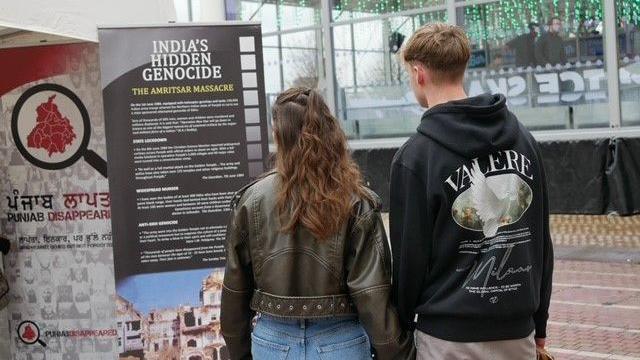
Organisers described the vigil as "emotional" and "sombre"
Get in touch
Tell us which stories we should cover in Birmingham and the Black Country
Follow BBC Birmingham on BBC Sounds, Facebook, external, X, external and Instagram.
Related topics
- Published31 October 2024
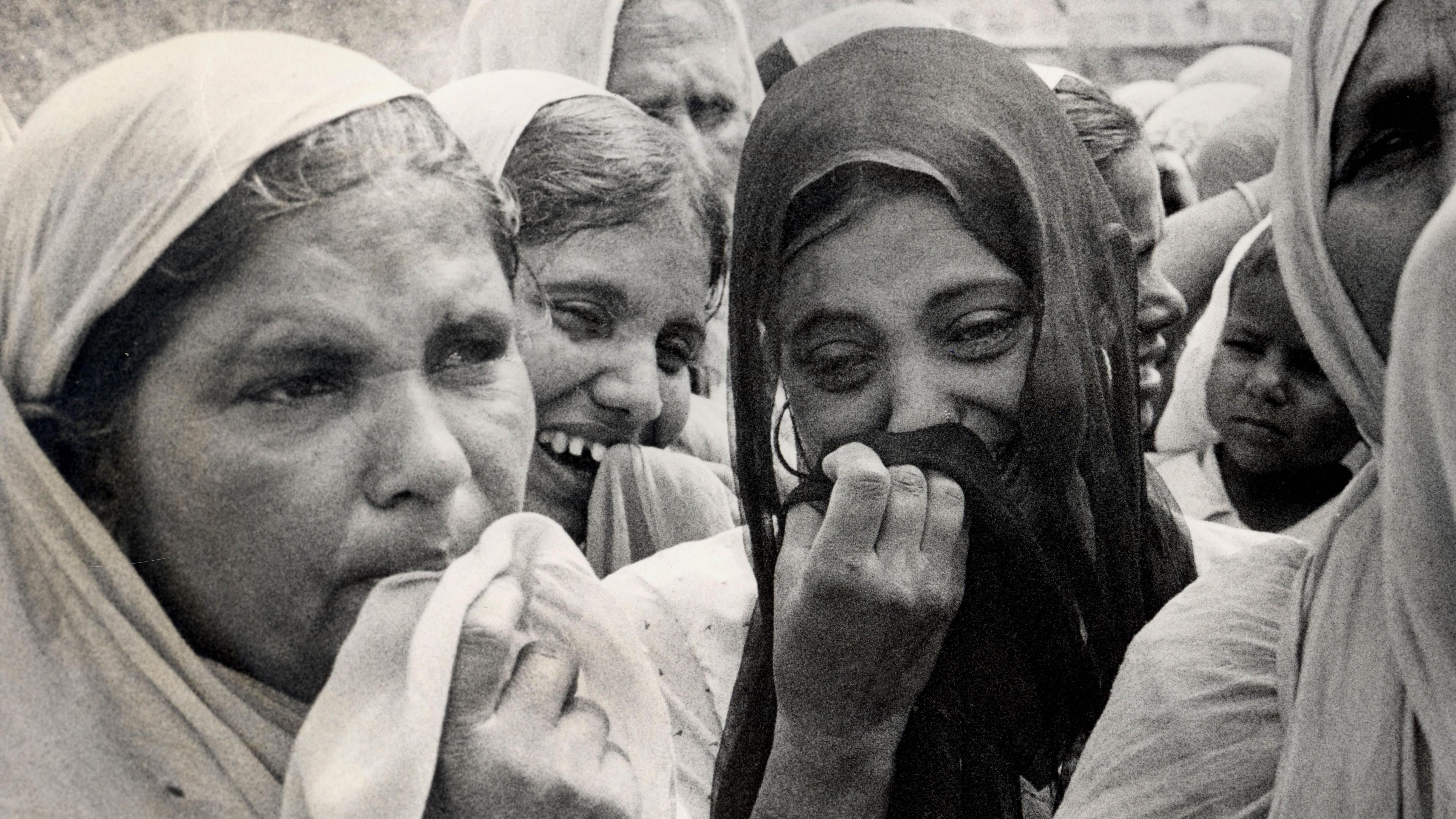
- Published20 November 2018
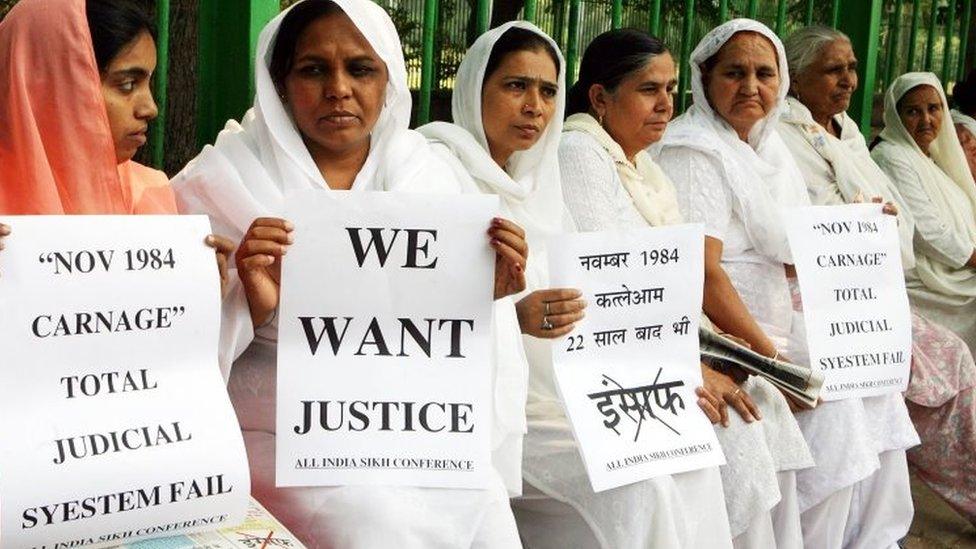
- Published17 December 2018
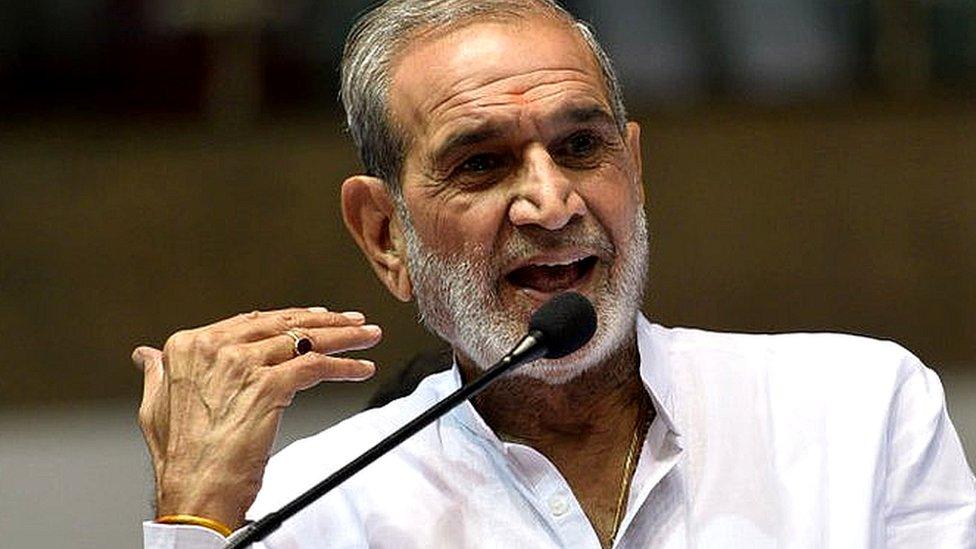
- Published1 November 2017
